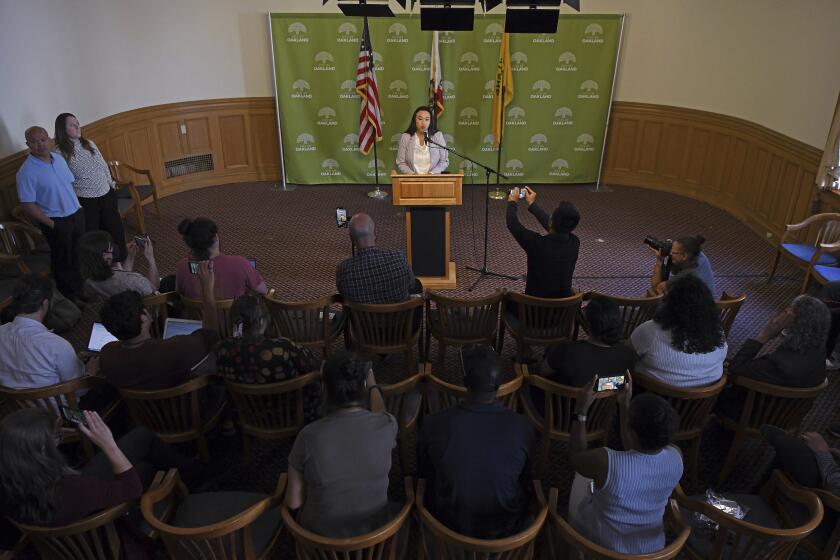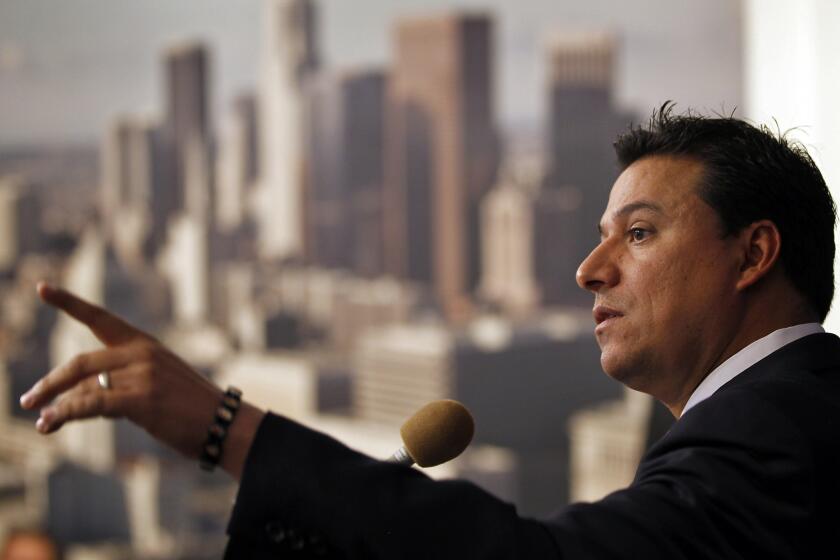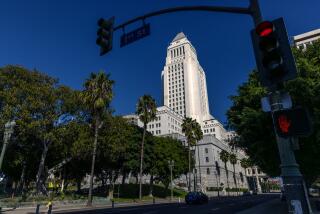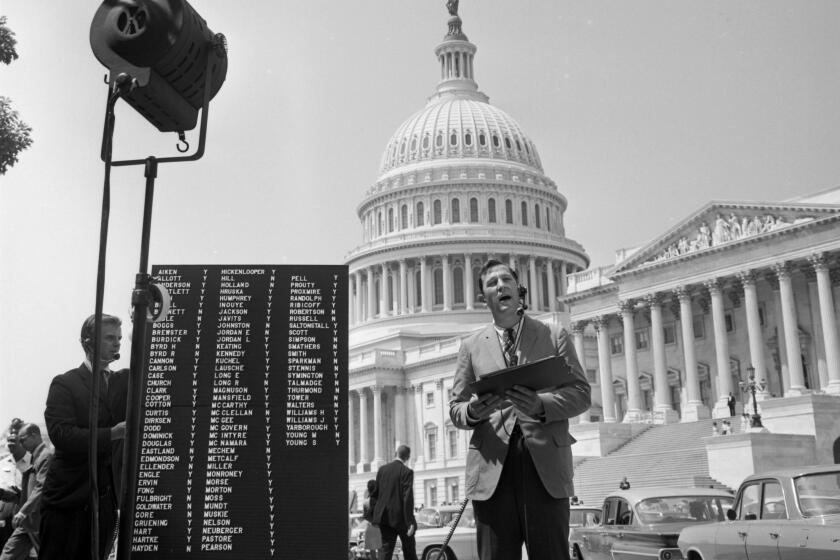Editorial: Special interests are trying to gut law that curbs corruption in local government

Two years ago, without a single “no” vote among them, California legislators passed a law to curb the kind of pay-to-play corruption that has tarnished local governments throughout the state.
Business groups, campaign donors and local elected officials have been trying to eviscerate the law ever since, and this session they pushed two bills designed to do exactly that. Legislators ought to reject any efforts to gut the law and instead focus on changes that make it clearer and easier for local officials to comply.
The package of reforms the L.A. City Council is considering has a problem: It doesn’t give the City Ethics Commission the independence it needs to do its watchdog job.
Senate Bill 1439 by Sen. Steve Glazer (D-Orinda) expanded a 1982 law known as the Levine Act, which banned appointed members of local boards and commissions from voting on a license, permit or other approval that has a direct financial benefit for someone who donated more than $250 to their campaigns for elected office.
The 2022 bill extended that prohibition to local elected officials, including members of city councils, school boards, water boards and county boards of supervisors, who had previously been exempt from the Levine Act. The new law required that officials recuse themselves from voting on matters involving donors for a year after their campaign contributions were accepted. They would also have to refuse political contributions from any person or organization for a year after taking a vote to benefit that donor.
A corruption cloud hangs over Oakland City Hall. It comes at a terrible time for the struggling city
An FBI raid at Mayor Sheng Thao’s house, an effort to recall her from office and continuing public safety concerns have thrown the city into turmoil.
The purpose is to reduce conflicts of interest and pay-to-play politics. The exchange of money between those seeking approval for building projects or public contracts and the people granting approval creates the perception of quid pro quo, which undermines public confidence in the decisions. Narrow, time-specific restrictions on accepting campaign contributions and voting on behalf of donors help reduce the perception of favoritism. And it’s not a new idea.
The Los Angeles City Council — reeling from a series of corruption scandals involving real estate interests — voted in 2019 to ban campaign contributions from developers with projects needing city approval. The city also bans contributions from registered lobbyists and bidders for city contracts.
Want to reduce the risk of political corruption in Los Angeles development decisions? Take the politicians out of the process.
Which is why the vehement opposition to the provisions in SB 1439 is surprising and frustrating. Business groups sued to overturn the law, arguing it would discourage their members from making political contributions and infringed on constitutional free speech protections. A Sacramento Superior Court judge upheld the law, noting that the U.S. Supreme Court has recognized that preventing quid pro quo corruption or its appearance is a compelling state interest.
Business groups and some local officials then turned to the Legislature to undermine the law. Governments organizations, including the Los Angeles County Board of Supervisors and the League of California Cities, complained the law is too broad and the contribution limit too low, and that it has been difficult to comply with.
It’s taking far too long to get a report on how to improve Los Angeles County government. It’s time to go to the ballot and let voters decide.
Glazer and the good-government groups that back the law acknowledge some fine-tuning is in order. This year, Glazer introduced Senate Bill 1181 to address implementation issues without undermining the purpose of the original law. He also said he’s considering raising the $250 contribution threshold for recusal. Supporters, including the California Clean Money Campaign, have suggested $500 would be reasonable.
Senate Bill 1243 by Sen. Bill Dodd (D-Napa) would narrow the recusal time frame and raise the threshold to $1,000. That’s too high. It would make the law practically moot in many cities that already cap campaign contributions at levels well below $1,000, so no single donation would trigger the pay-to-play protection. A bill by Assemblymember Tina McKinnor (D-Hawthorne ) would have raised the threshold to $1,500 but it, thankfully, died in committee last week.
Opponents of the pay-to-play restrictions argue that the law makes it harder for candidates with less financial means to raise money for their campaigns. But the law doesn’t restrict all donors, just those with a permit, contract or other decision pending before the local elected body. And if critics of the law are saying the only way to fund a city council campaign is to squeeze donations from people doing business with the city, well, that’s an argument for public campaign financing, not for scrapping safeguards against corruption.
Trust is essential for a functioning government and is easily lost when elected leaders get caught putting their own interests above the public’s. Legislators made the right decision two years ago to fight pay-to-play corruption among local officials. They shouldn’t reverse course now.
More to Read
A cure for the common opinion
Get thought-provoking perspectives with our weekly newsletter.
You may occasionally receive promotional content from the Los Angeles Times.










